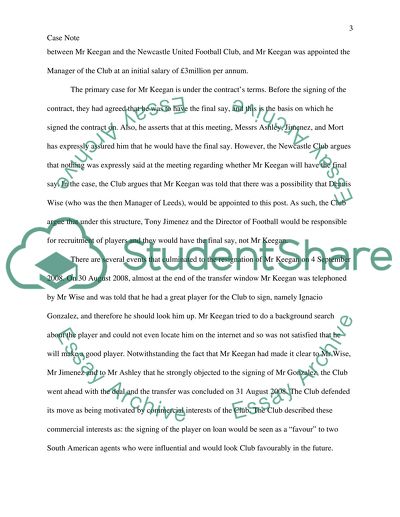Cite this document
(“Keegan v Newcastle United Football Co Ltd Essay”, n.d.)
Retrieved from https://studentshare.org/law/1398489-law-essay
Retrieved from https://studentshare.org/law/1398489-law-essay
(Keegan V Newcastle United Football Co Ltd Essay)
https://studentshare.org/law/1398489-law-essay.
https://studentshare.org/law/1398489-law-essay.
“Keegan V Newcastle United Football Co Ltd Essay”, n.d. https://studentshare.org/law/1398489-law-essay.


